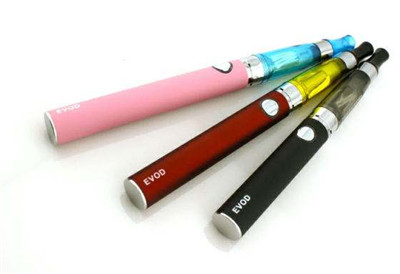We hear a lot about how the ingredients in vape juice might be bad for us: the nicotine is addictive, for example, and the flavorings could be bad for lungs. But new research says that there are chemicals in e-liquids that we didn't even know to worry about, because they form in the e-liquid bottle after all the ingredients are mixed together.
我们常听别人说蒸汽果汁电子烟中的成分可能对人体有害:例如,尼古丁会让人上瘾,不同的口味可能对肺部有害。但新研究表明:我们甚至都不知道担心蒸汽液中的化学物质,因为所有成分混合在一起后,才形成了这种蒸汽液瓶。
Scientists have discovered that cinnamon, vanilla, and cherry flavors react with propylene glycol, a main ingredient in many vape juices, to create entirely new chemicals, according to a study published today in the journal Nicotine & Tobacco Research. Those same chemicals carry over into the vapor that people inhale, the new study says. Early investigations led by Sven-Eric Jordt, a professor of anesthesiology, pharmacology, and cancer biology at Duke University, suggest that these modified flavorings might be able to irritate lungs over the long term. And people don't even know they're inhaling them.
今日发表在《尼古丁与烟草研究》(Nicotine & Tobacco Research)杂志的一项研究表明:科学家发现肉桂、香草和樱桃口味会与丙二醇(大多数蒸汽果汁的主要成分)发生反应,产生全新的化学物质。这项新研究表明,人们吸入电子烟的同时,也在吸入这些化学物质。以杜克大学麻醉学、药理学和癌症生物学教授斯文-艾里克·诸林牵头的早期研究表明,若长期抽电子烟,这些改良的调味剂或刺激肺部。而可悲的是,人们甚至都不知道吸入了这些物质。
There are more than 7,000 e-liquid flavors out there, and they're pretty controversial. Right now, regulators and lawmakers are weighing how to regulate them, and there's an ongoing debate about whether flavored e-liquids lure in kids or help adults switch away from cigarettes (or both). But there are also health impacts to consider: while the FDA says many of these flavors are safe for eating, we don't actually know if they're safe for breathing. Some research, for example, suggests cinnamon flavors can harm lung cells, The New York Times reports.
目前市场上大约有7000种电子烟口味,当然,这也引起了人们的争议。目前,监管机构和立法者正在权衡如何对其进行监管;人们仍在争论不同口味的蒸汽液是否会吸引儿童尝试,是否能帮助成人戒烟(或两者兼有)。但我们也要考虑其对健康的影响:虽然美国食品药品监管局表示很多口味都是可以安全食用的,但我们并不知道吸入这些蒸汽液是否安全。例如,《纽约时报》报道,有些研究表明:肉桂口味的蒸汽液或对肺细胞造成损害。

And now, it turns out that there's more than just the flavor ingredients themselves to worry about: there are also the chemicals the flavorings can produce as they continue reacting in vape juice. That's why this study is important, says Robert Strongin, an organic chemist at Portland State University who was not involved in the research. It looks at the risks unique to the soup of chemicals in e-cigarettes. "There are things that are being vaped and inhaled that people don't really know about."
现在,事实证明:我们不仅需要担心不同口味的成分,还要担心其在蒸汽果汁中发生反应所产生的化学物质。因此这项研究十分重要,罗伯特·斯特龙金说道,他是波特兰州立大学的有机化学家,并未参与这项研究。这项研究独到的着眼于电子烟中化学物质的危害。"人们甚至不知道自己吸入了什么。"
译文属可可原创,仅供学习交流使用,未经许可请勿转载













